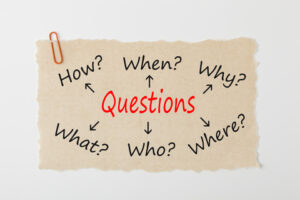You’re Fired!.
— Donald Trump on “The Apprentice”
We’ve all been there – the pit in the stomach, the endless excuses, the countless delays. In our business lives, as well as personal, we often know we’d be better off if we could simply end a key, but troublesome, relationship. It’s time to say goodbye, but we just can’t seem to bring ourselves to do it. Maybe we’re afraid of the other person’s response, of being alone, or never finding someone as good again. Often we rationalize, “It’s not so bad,” or “At least I have a customer/business partner/boyfriend.” As a result, we slog on. We pretend that maybe, just maybe, this time it’ll get better and we won’t need to have that difficult conversation we so desperately want to avoid. But no, inevitably one or more reasons reassert themselves, and we recycle through the anxiety of wanting to end the relationship, but we just don’t know how.
Wouldn’t it be nice if, like Donald Trump on “The Apprentice,” you could simply say, “You’re fired!”? It’s certainly dramatic, and good for ratings, but it doesn’t translate well to real life. It’s what I call the “cross the line” phenomenon. A friend of mine debated for over a year whether she should leave her boyfriend. She was always on the cusp, but held in there hoping things would change. One particular evening, the boyfriend became so irate; he kicked her poodle off of a balcony. Frantically scooping up her little pet, which fortunately wasn’t seriously hurt, she knew in that instant, the line had been crossed – the relationship was over. From her new vantage point, she glared up and shouted, in so many words, “You’re fired!”
I can tell you, my friend’s certainty in that situation gave her immense personal power, but she had to wait until the joy of her life was nearly killed before taking action. And by the time she did act, the relationship was irrevocably broken. Neither party could maintain any kind of contact, which was a significant loss for both. There is a better way – one that will facilitate ending non-productive relationships, avoid the “cross the line” phenomenon, and offer a good possibility of preserving a post-breakup connection. I call it the “Power of Parting.” In business and other areas of our lives, there’s power in managing relationships well, which means, among other things, being able to part from those who are no longer useful, or perhaps have become abusive or otherwise unsuitable. But how do we know it’s time to cut the cord, versus dig in and find new ways to cope? The answer is, the cost exceeds the benefit and there’s nothing new to offer. You’ve shared your highest truth and you’re reasonably sure the other person has heard you. In fact, going over the same ground time and again leaves you emotionally drained, perhaps to the point of experiencing stress symptoms such as sleep disturbances, appetite changes, or loss of energy. And, while being stressed out, your rational assessment of the big picture tells you nothing will change. This is the best it’ll ever be, and that’s not good enough. At this point, commit in your mind to the act of parting ways, but let it simmer for 48 hours. If it’s a good idea now, it’ll be good in a couple days. And finally, project ahead as to how your relationship will be if you don’t take action. Imagine looking in a mirror as you age with this person – do you appear strong, energetic, and happy? Or instead, do you reflect increasing sadness – shoulders slumped, features flat, and eyes dim – as you consider the cumulative effects of never being your honest yourself, hoping things will change with no evidence they ever will (a definition for insanity), and slipping into depression.
OK, so you’ve determined now is the time to part. What’s next? Well, before discussing tools, it’s first extremely important to come from the right place – a desire to execute with heart. In other words, the tough conversation you’re about to have is NOT your opportunity to beat up, berate, or argue with the person with whom the relationship is about to be severed. Those conversations are done (see the previous paragraph). Instead, the goal is to lovingly sever the “old” relationship, assist with the next steps, and if appropriate, set up a new kind of relationship that will honor the connection you previously had, but will allow the two of you to function separately going forward. This last point is important because, in most cases, there’s often value in maintaining relationships. If you’ve arrived at this juncture with your self-respect and dignity intact (that is, no line has been crossed), then you have the basis for transforming your relationship for the betterment of both parties.
So let the parting begin! As with any emotionally challenging situation, it’s always best to start with – “nothing!” Literally, pause and take a few deep breaths before you dive in. This will help you collect your thoughts, get grounded with your feelings, and reaffirm your desired outcome1. Next, deliver your message with what I like to call a “Positive Sandwich” – start with love, insert the potentially challenging information, and conclude with love.3 First, tell the person with whom you’re parting that you respected and/or enjoyed your relationship. Remember, parting is often difficult because you likely did find compelling aspects about the relationship that drew you in. They’re now worth recounting to underscore how important the relationship has been. You may even find that writing down your message will clarify your thoughts and facilitate your communication. Once you’ve established a loving base, quickly move to the “meat” of your message. Because you are in charge, this part must be unequivocal. This is you delivering the news, not requesting a dialog, so it’s best to resist attempts to divert the conversation, rehash grievances, or reconcile the relationship. If the recipient attempts to do any of these, it’s fair to ask the person to simply listen without judgment while you say what you need to say. Be sure to pause as needed, use “we” language (“We’re not working well together”) versus “you” language (You’re the cause of our problems”), and acknowledge the others’ feelings. Although your reasons shouldn’t be anything new, your decision to part will likely still surprise the other person. After discharging your message, provide love once again by suggesting ways in which the person can move forward (job fairs, counseling, dating services, etc) and if appropriate, offer to maintain contact in a newly defined way, such as remaining cordial socially or being supportive professionally. This needs to be a sincere offer, and as discussed earlier, if you haven’t yet crossed the line, then a relationship based on a new dynamic is likely quite possible.
That’s it! At this point, you may feel any mix of emotions – from relief that it’s “out there” and you can move on, to remorse at having “hurt” the other person. It’s useful to understand separation is like death, so “grieving” emotions of anger, denial, bargaining, and acceptance3 may happen as you move through the process. Rely on support networks, such as friends and professional associations, to help fill in the holes previously occupied by the other person. And, remind yourself of your accomplishment – You prepared and studied for a difficult exam, and now it’s over and you passed! As one door closes, another opens, revealing new paths from which you, and the other person, can choose. In fact, you may even get credit from the other person, if not immediately then down the road, for having the courage and grace to give the gift of a loving, well timed, and optimally delivered farewell.




